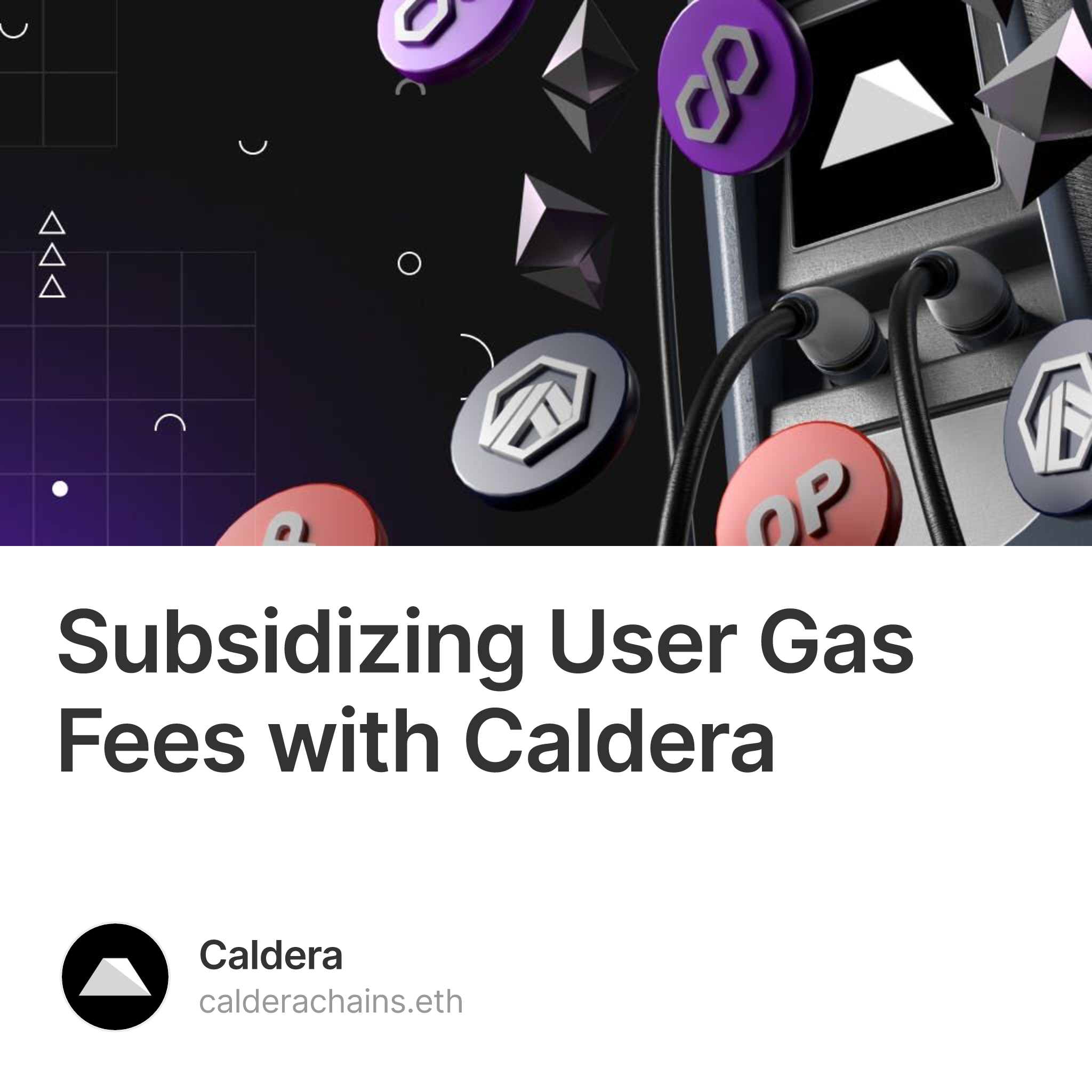What are gas fees?
Gas refers to the unit that measures the amount of computational effort required to execute specific operations on the Ethereum network.
Gas is the foundation of the Ethereum network. Every network on the chain has a non-zero gas fee that rewards supporters who have staked Ethereum and prevents bad actors from spamming the network. [0]
In fact, projects that need faster execution speed can add a tip for the miner to bump their operations to the top. Every dApp built atop the Ethereum blockchain contends with this balance of price and speed.
Developers aside, gas fees are also at odds with the end user experience. They penalize usage, increase friction, and can become prohibitively expensive over time. As we think about the future of crypto, the reality is that most users don’t want to be forced to buy tokens like ETH, MATIC, or SOL or watch 15 minute tutorial videos to interact with dApps. They’d much rather onboard quickly and find utility in the dApps, without jumping through a bunch of hoops.
Although gas fees are at the center of every blockchain, the user experience in trading tokens, purchasing NFTs, or playing a game shouldn’t revolve around gas fees.
The world today: meta-transactions
The easiest way for projects to counteract the friction of gas fees is to subsidize user gas fees.
Today, most projects choose to deploy meta-transactions, where a user’s transaction is relayed to a third party that pays the gas fee and does the actual execution.
In a meta-transaction, the user initiates the transaction by sending a signed message with all the transaction details to a centralized third party — the relayer. The relayer then validates the signature and creates a new transaction on the Ethereum network, paying the corresponding fees from their own account. The transaction from the relayer is processed as any other, and the user can access the results of the transaction from the Ethereum network.
This intricate dance of messages between the user and relayer has, for lack of a better word, worked. Decentraland used meta-transactions to cover gas fees for over 677,000 transactions and saved an aggregate $32,500 USD in gas savings for users.
The tradeoff: meta-transactions come with increased code complexity.
A project’s smart contracts now need to perform signature verification to confirm the origination of the transactions. Even one small mistake in the verification process can lead to disastrous consequences - in Wormhole’s case, it cost them 120,00 ETH or $320 million.
The project also needs to build new user flows with the relayer. Since the relayer executes the transaction, users first need to explicitly authorize the relayer to execute transactions on their behalf. Then, for each transaction, the project needs to collect and transfer transaction responses from the relayer back to the user.
All the additional engineering complexity and security tradeoffs with meta-transactions have slowed projects from implementing user gas fee subsidization.
Making transactions free at the node level
Caldera takes a different approach.
We make it easy for projects to launch their own layer-2 rollups. Within the rollup, projects can choose to shoulder the burden of gas fees on the L2, rather than making users pay. Doing so broadens the reach of a project, instantly. An L2 rollup also insulates the project from market swings and reduces the overall gas fees for the project, allowing for a more consistent user experience.
While gas subsidization happens at the rollup level, developers get the same experience as they normally would on an L1. Further, with a gasless chain, existing Solidity contracts can be deployed and free for users to transact with by default. That means no more engineering time on meta-transaction signature verification, and no more awkward user flows.
The average internet user has come to expect a largely costless online browsing experience, with free services such as Facebook, Instagram, and Google. Onboarding the first billion users is web3’s greatest challenge, and creating dApps with gasless transactions are the first step to achieving this.
Caldera’s L2 rollups are the quickest path to get started with gasless rollups — get in touch with us to start building web3 at scale.
[0] Before the London Upgrade, gas fees were distributed to miners that used their time and computation power to process transactions and produce blocks.

